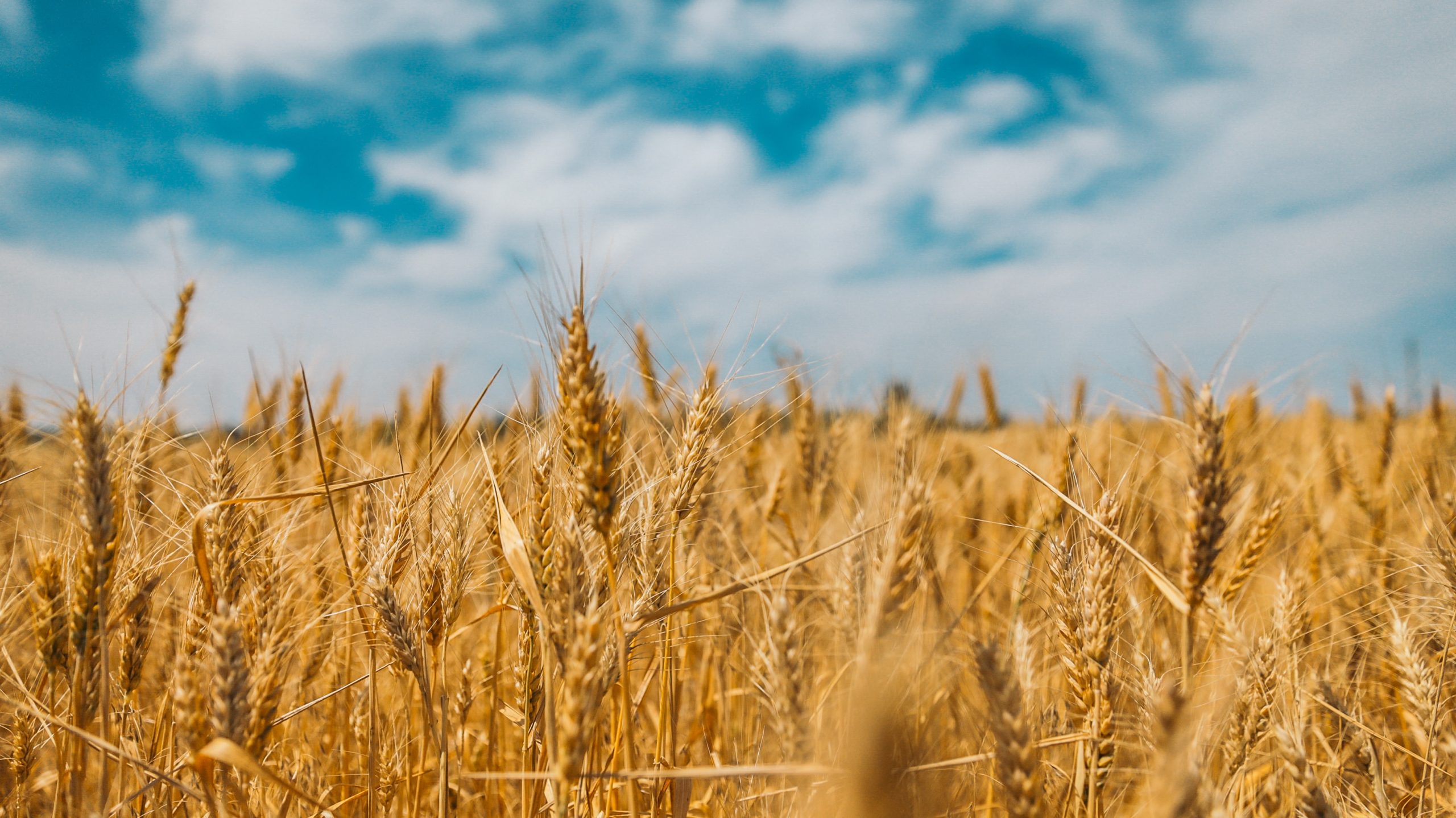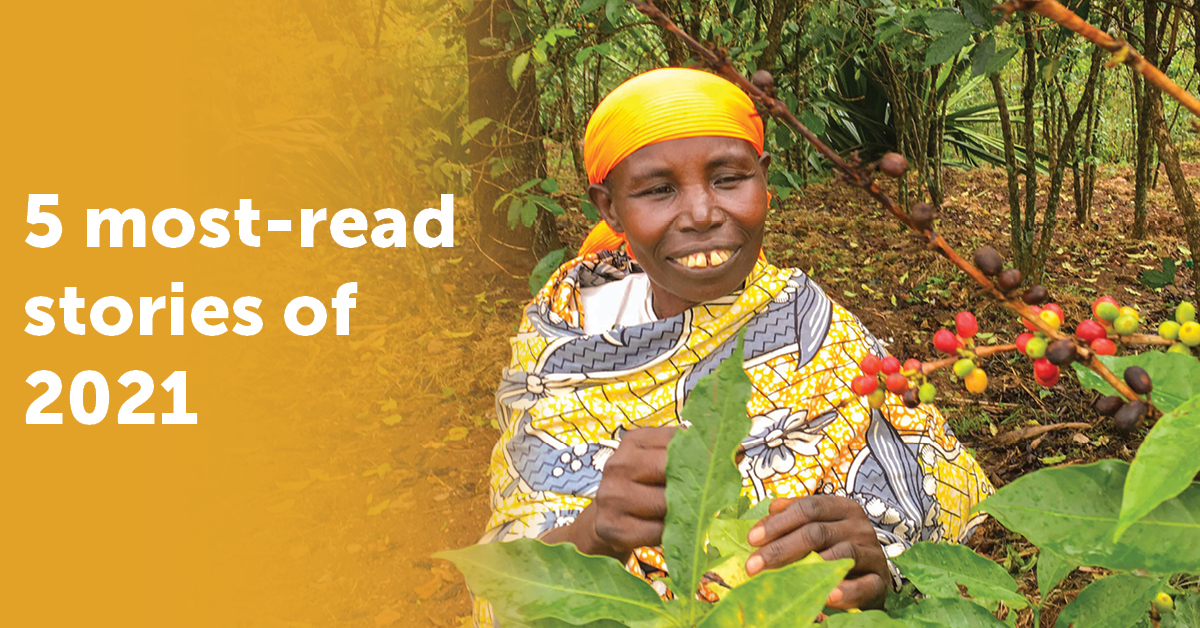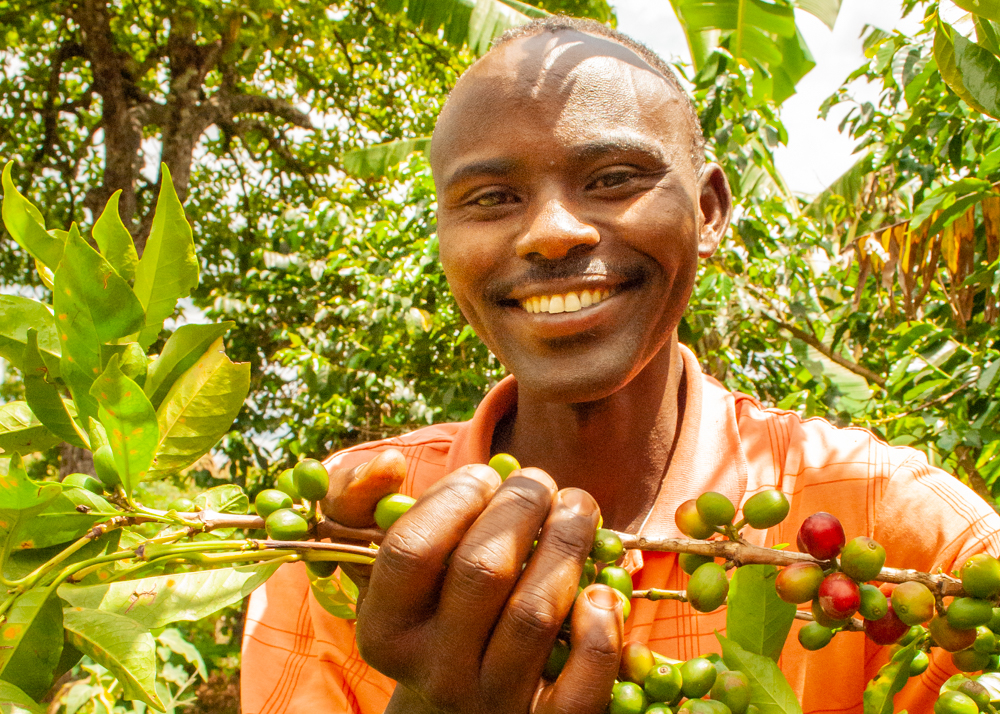HOPE International is launching a new savings group program in Tanzania! And Anna Makundi recently joined us as the country director, with the task of forming a new team and bringing on new church partners. We’re grateful for her pioneering spirit and willingness to set the foundation to serve more people through savings groups.
Born and raised in Tanzania, Anna holds a master’s degree in public policy from the Victoria University of Wellington and has extensive international development experience with several prominent nonprofits. Anna lives with her husband and their three sons in Arusha, a city in northeast Tanzania.
Recently, Anna sat down with us to share her thoughts on why HOPE is launching in Tanzania, her dreams for HOPE’s impact in local communities, and how we can pray for her growing team. Continue Reading…






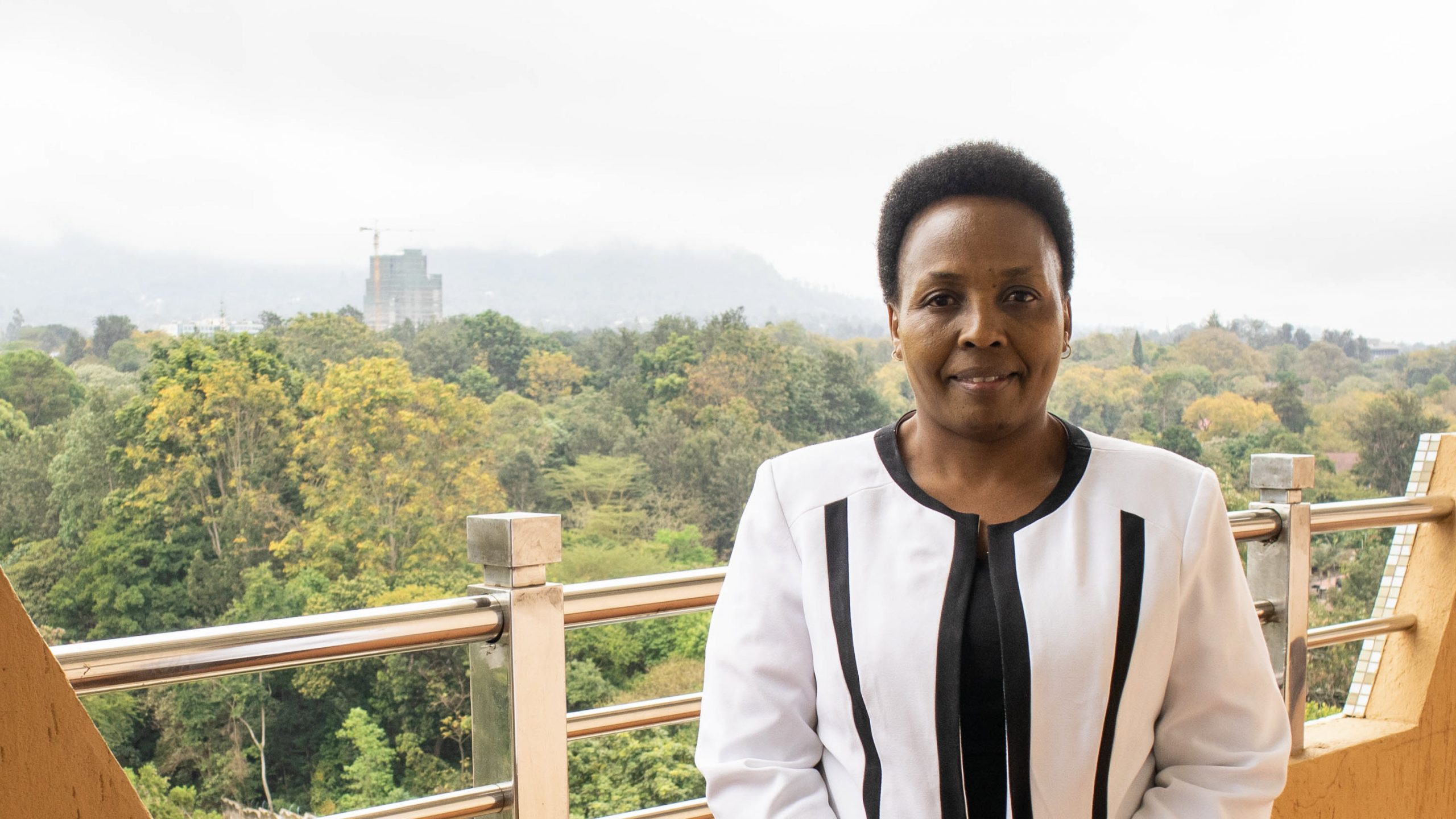


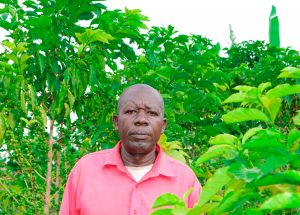 Simon Rurihafi (pictured right) is a coffee farmer who owns 350 trees—but he almost gave up on farming them.
Simon Rurihafi (pictured right) is a coffee farmer who owns 350 trees—but he almost gave up on farming them.